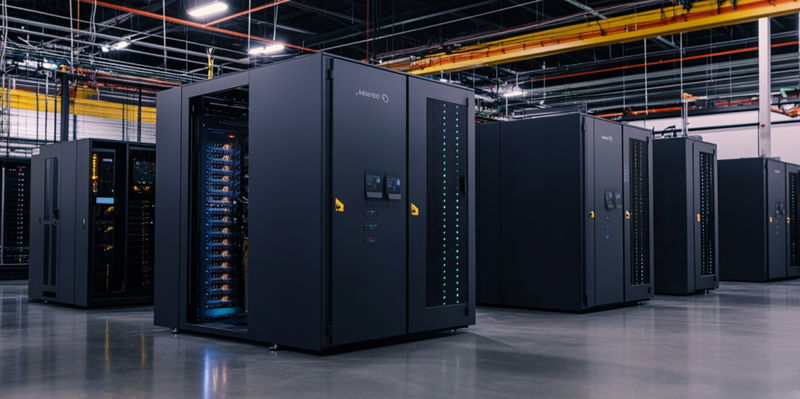As industries like automotive, energy, and manufacturing navigate the rapid advancements of digital transformation, the ability to quickly and efficiently handle large volumes of data has become critical. Technologies such as edge computing, 5G, and artificial intelligence are pushing the need for real-time data processing to unprecedented levels. This necessity is driving a paradigm shift towards in-house micro data centers, which are poised to revolutionize data management by decentralizing processing and bringing it closer to the data source. Among the leading solutions in this realm are Rittal’s RiMatrix Micro Data Centers, which offer customizable and integrated systems that promise minimal latency and enhanced data usability.
Shifting to In-House Data Processing
The Rise of Decentralized Micro Data Centers
The shift to in-house micro data centers represents a significant move towards decentralizing data processing. Traditionally, data was collected and sent to large centralized data centers for analysis and storage. However, with the increasing demand for real-time data processing, this model is becoming less viable. Micro data centers address this challenge by allowing data to be processed closer to its point of origin. This localized approach not only reduces latency but also provides businesses with greater control over their data management processes.
Industries that are at the forefront of digital transformation, like automotive and manufacturing, are particularly benefiting from this shift. These sectors require rapid processing and immediate data insights to innovate and maintain competitiveness. Rittal’s customizable micro data centers are designed to meet these needs by offering integrated components such as racks, power, cooling, monitoring, and security. This integration ensures that data is managed efficiently and securely, enabling businesses to respond swiftly to market changes and operational demands.
Advantages and Adaptability of Micro Data Centers
One of the chief advantages of micro data centers lies in their adaptability. As businesses scale and their data needs grow, these centers can be easily expanded to accommodate additional processing requirements. This scalability is crucial for industries experiencing rapid innovation, where data volumes and processing demands are constantly evolving. Rittal’s RiMatrix Micro Data Centers are particularly noted for their flexibility, allowing for seamless integration with existing infrastructure and easy upgrades as needed.
Moreover, the customizable nature of these micro data centers means they can be tailored to specific industry needs. For example, the cooling systems can be optimized through Computational Fluid Dynamics (CFD) to ensure efficient thermal management, which is vital in energy-intensive environments. This tailored approach helps businesses maximize their space and energy resources, addressing common challenges such as space constraints and energy efficiency. The compact design of Rittal’s solutions makes them particularly suitable for urban settings or situations where space is limited.
Overcoming Challenges in Data Management
Space Constraints and Energy Efficiency
One common challenge in data management is the constraint on physical space. Traditional, large-scale data centers require substantial real estate, which can be a limiting factor, especially in urban areas. Rittal’s RiMatrix Micro Data Centers offer a space-saving alternative that does not compromise on performance. Their compact design allows them to be deployed in a variety of environments, from small offices to larger industrial facilities, making them a versatile solution for businesses of all sizes.
Energy efficiency is another critical concern for businesses aiming to manage their data processing needs effectively. The energy consumption of large centralized data centers can be prohibitive, both from a cost and environmental perspective. Rittal’s micro data centers address this issue by incorporating energy-efficient cooling systems and power management solutions. The use of CFD for optimizing cooling not only reduces energy consumption but also enhances system reliability and longevity. This dual benefit supports businesses in their quest for sustainable operations without sacrificing performance.
Ensuring Security and Reliability
As industries like automotive, energy, and manufacturing grapple with the swift advancements of digital transformation, managing large volumes of data swiftly and efficiently has become crucial. Technologies such as edge computing, 5G, and artificial intelligence are elevating the demand for real-time data processing to unprecedented levels. This need is instigating a significant shift towards in-house micro data centers. These centers are set to revolutionize data management by decentralizing processing and bringing it closer to the point of data generation. A prime example of solutions in this area is Rittal’s RiMatrix Micro Data Centers. These centers provide customizable, integrated systems that promise minimal latency and enhanced data usability, making them optimal for industries coping with vast data. By moving data processing closer to the source, these micro data centers ensure faster, more efficient operations. Consequently, industries are better equipped to handle the complexities of modern data demands, ensuring smoother transitions into the era of digital transformation.

